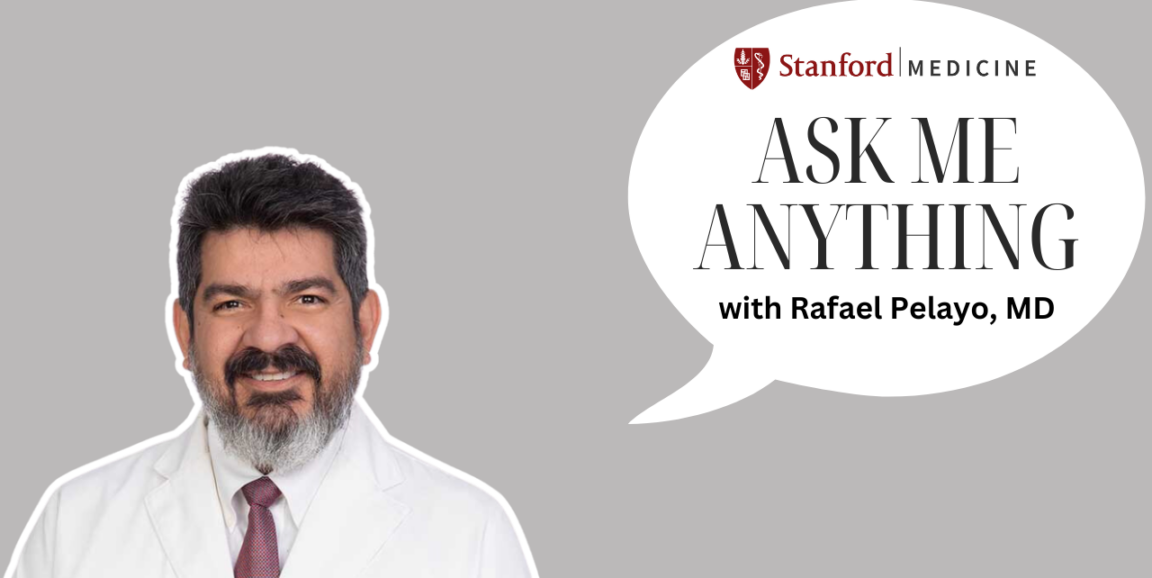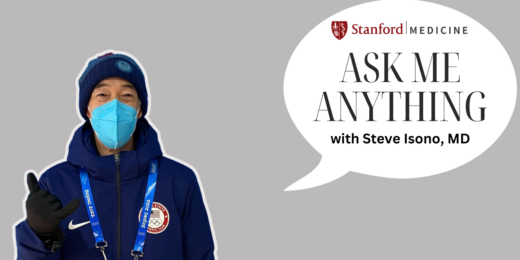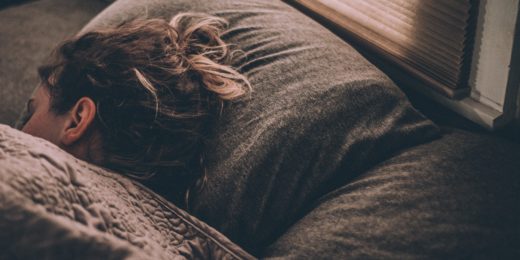We may have "sprung forward" this past weekend, but the pep in your step might be a little sluggish thanks to that missing hour of shut eye. Sleep, as we all know, is the all-powerful, sometimes elusive, rejuvenation we all need -- but what's the science behind our nightly rest? Why do we dream? Why do some people sleep less than others?
For an Ask Me Anything on Stanford Medicine's Instagram account, sleep scientist Rafael Pelayo, MD, answers questions posed to him on Instagram about sleep, dreams, Daylight Saving Time and more.
The following Q&A represents selected answers from the session and has been edited for clarity and length.
What is the average time a person takes to fall asleep?
Ten or 15 minutes is the standard answer. The caveats is that we are amnestic [meaning we experience memory loss] as we fall asleep, so you know when you go to sleep but you can't say when you fell asleep? In a drowsy N1 sleep -- the transition time between being awake and being asleep -- you may think you are awake when you are not.
Tips to fall asleep quickly?
Sleep in a cool environment. Remember, people fall asleep before they freeze to death. This is why so many sleep products are marketed as cold, not hot. Ideally, you want to fall asleep like a 9- or 10-year-old child -- in a state of serenity, knowing that you're safe, comfortable and loved. That is the state of mind that will help you sleep best.
As an adult, none of those things may be true in our awake lives. You might live with anxiety, be uncomfortable and/or not feel particularly loved. But those awake problems will be waiting for you tomorrow. In your bed get into that serenity state of mind. You want to look forward to sleeping. Think you "get to go to sleep" rather than "I have to go to sleep."
How do you reset your sleep schedule?
Lock in your wake-up time first. Keep it locked for 6-8 weeks. It is easier to force yourself to wake up than to force yourself to fall asleep. Locking in the wake-up helps the brain predict when dawn will occur the next day -- a potentially essential piece of information for our survival.
When you wake up, get exposed to as much light as possible. In nature, we fall asleep in darkness and wake up to light -- or just before the dawn.
Is snoring normal?
Never; it always indicates some degree of turbulent airflow due to obstruction. That obstruction may be temporary, as in when you have a cold, or could be chronic, such as in obstructive sleep apnea syndrome.
Are you for or against Daylight Saving Time? What are the pros and cons of getting rid of it?
Standard time is the best option, according to the published statement of the American Academy of Sleep Medicine, and it is supported by the California Sleep Society. The first step is to get rid of the twice-a-year clock change. It is annoying and we are a sleep-deprived society. We don't have an extra hour of sleep to spare in the spring. We are forcing society to give up an hour of morning light for an extra hour of light in the evening. Depending if this affects you economically, you may prefer permanent Daylight Saving Time, instead. But sleep experts will agree that we should stop playing with the clocks.
Why do we only remember our dreams some of the time?
When the dreams invoke a lot of emotion, you are more likely to briefly have an arousal or change of consciousness. When that happens, you can peek into your dream. The late William Dement, MD, a renowned sleep expert, would say you have to wake from the dream to remember it. If you sleep through your dreams you are less likely to remember them because dream work involves forgetting, too. Memories are like ships passing in the night when you sleep.
Why do we dream?
This is the question that initially led me to explore sleep, going back to my adolescence. Dreaming likely has several functions and benefits. Dreams have very likely influenced society since the origin of consciousness. Dream-equivalent behavior has been identified in many animals, including birds and fish. In humans, it is involved with procedural memory formation and processing of emotions.
What are some of the ways parents can help kids adapt to the time change?
Be patient with them. One study of teenagers found it can take up to five days to make up for that one-hour loss. Encourage them to satiate themselves with sleep as much as possible before the shift. Daylight Saving Time is not a weekend to stay up late.
My 8-year old has night terrors when she has really high fevers. Is there a connection?
Yes, fever can cause sleep fragmentation, which increases the risk for sleep terrors in children who are susceptible to parasomnias. They can occur in the daytime for example from a nap, not just at night.
Do you recommend naps? If so, for how long?
Naps are like snacks. Sometimes it's good to snack and sometimes not; it depends. If you do nap, shorter naps are better than longer naps. Try to nap for an hour or less -- sometimes 15 minutes can feel great.
I really like to have a snack before bedtime. Is that bad for sleep?
You don't want to go to sleep hungry, but reflux can occur in some people when they eat close to bedtime. Food can also interfere with the absorption of some medications. This may be why a person may experience variability in the efficacy of a hypnotic sleep aid, for example.
Can you become addicted to such sleep aids as CBD or melatonin?
You can be habituated to anything you believe can help you sleep, including your favorite stuffed toy. But that is not the same as an addiction. Prescription hypnotics can be habit-forming and associated with withdrawal symptoms. Over the counter sleep aids are not considered to be addicting, but they can be habit-forming.
By how much does brain activity reduce when you start to sleep?
Brain activity is not really reduced when we sleep. Activity is simply shifting into a maintenance/housekeeping/ restorative mode. Some parts of the brain are more active in sleep than while awake.
Thoughts on sleep-training your baby?
Think about sleep from their point of view. What incentive does that infant have to change their sleep behavior. I would like to rocked to sleep by the person who loves me the most in the world, too. But I learned to sleep by myself just fine. I teach that the need for sleep is biological, but they way we sleep is learned. Babies are born sleeping randomly and it is best for their survival if they adapt their sleep to their parents'. The other way around is less fun.
For more Ask Me Anything content, visit related Scope stories.
Photo by Isabella and Zsa Fischer






